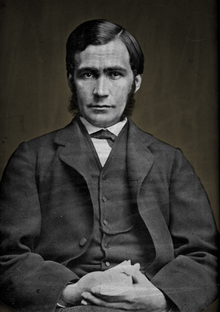The Liberalism portal
Liberalism is a political and moral philosophy based on the rights of the individual, liberty, consent of the governed, political equality, right to private property and equality before the law. Liberals espouse various and often mutually warring views depending on their understanding of these principles but generally support private property, market economies, individual rights (including civil rights and human rights), liberal democracy, secularism, rule of law, economic and political freedom, freedom of speech, freedom of the press, freedom of assembly, and freedom of religion, constitutional government and privacy rights. Liberalism is frequently cited as the dominant ideology of modern history.
Liberalism became a distinct movement in the Age of Enlightenment, gaining popularity among Western philosophers and economists. Liberalism sought to replace the norms of hereditary privilege, state religion, absolute monarchy, the divine right of kings and traditional conservatism with representative democracy, rule of law, and equality under the law. Liberals also ended mercantilist policies, royal monopolies, and other trade barriers, instead promoting free trade and marketization. Philosopher John Locke is often credited with founding liberalism as a distinct tradition based on the social contract, arguing that each man has a natural right to life, liberty and property, and governments must not violate these rights. While the British liberal tradition has emphasized expanding democracy, French liberalism has emphasized rejecting authoritarianism and is linked to nation-building. (Full article...)
Selected article -
In United States politics, modern liberalism, a form of social liberalism, is one of two current major political ideologies. It combines ideas of civil liberty and equality with support for social justice. Economically, modern liberalism supports government regulation on private industry, opposes corporate monopolies, and supports labor rights. Its fiscal policy opposes any reduction in spending on the social safety net, while simultaneously promoting income-proportional tax reform policies to reduce deficits. It calls for active government involvement in other social and economic matters such as: reducing economic inequality, increasing diversity, expanding access to education and healthcare, regulating economic activity, and environmentalism. Modern liberalism was formed in the 20th century in response to the Great Depression. Major examples of modern liberal policy programs include the New Deal, the Fair Deal, the New Frontier, the Great Society, the Affordable Care Act, and the Infrastructure Investment and Jobs Act.
In the first half of the 20th century, both major American parties shared influential conservative and liberal wings. The conservative northern Republicans and Southern Democrats formed the conservative coalition which dominated the Congress from 1937 until the Johnson administration. After World War Two, northern Democrats began to support civil rights and organized labor, while voters and politicians in the formerly "Solid South" opposed them from within the Democratic Party. Following the passage of the Civil Rights Act of 1964, conservative Democrats began an exodus from the party, and supported Republican candidate Richard Nixon in 1968. By the 1970s the Democratic Party became predominately liberal and the Republican Party adopted conservatism at the party's main ideology. As a group, "liberals" are referred to as left or center-left and "conservatives" as right or center-right. Starting in the 21st century, there has also been a sharp division between liberals who tend to live in denser, more heterogeneous urban areas and conservatives who tend to live in less dense, more homogeneous rural communities, with suburban areas largely split between the two. Since the 2000 election, blue and red have been the party colors of the Democrats and Republicans respectively, in contrast to the use of blue for conservatism and red for leftism in the rest of the Western world. (Full article...)Selected biography -

List of selected biographies
|
|---|
Selected quote
General images
Subcategories
Related portals
WikiProjects
Topics
Recognized content
Associated Wikimedia
The following Wikimedia Foundation sister projects provide more on this subject:
-
Commons
Free media repository -
Wikibooks
Free textbooks and manuals -
Wikidata
Free knowledge base -
Wikinews
Free-content news -
Wikiquote
Collection of quotations -
Wikisource
Free-content library -
Wikiversity
Free learning tools -
Wiktionary
Dictionary and thesaurus
























































